
Bolgatanga: The Cultural Heartbeat of Northern Ghana
Bolgatanga, affectionately known as Bolga, is a vibrant town situated in the Upper East Region of Ghana. Renowned for its rich cultural heritage and friendly locals, Bolgatanga promises a unique and immersive experience for any traveler. The town is a bustling hub of traditional crafts, with its famous basket weavers and potters showcasing their skills at the local markets. Visitors can marvel at the intricate designs and perhaps take home a beautifully crafted souvenir. Surrounded by picturesque landscapes, Bolgatanga offers plenty of opportunities for outdoor adventures. Explore the nearby Tongo Hills, where you can visit the Tengzug Shrine and gain insight into the spiritual practices of the indigenous people. The hills also provide breathtaking views and are perfect for hiking enthusiasts. For wildlife lovers, a trip to the Paga Crocodile Pond is a must. Here, you can get up close to these revered reptiles in a unique and safe environment. Bolgatanga's hospitality is second to none, with a variety of accommodation options to suit all budgets. Savor the local cuisine, which includes flavorful dishes like TZ and tuo zaafi, made from millet or maize. Whether you are exploring historic sites, engaging with local artisans, or simply soaking up the town's vibrant atmosphere, Bolgatanga offers an enriching travel experience that will leave a lasting impression.
Local tips in Bolgatanga
- Visit the Bolgatanga Market on weekends for the best selection of local crafts and produce.
- Hire a local guide when exploring the Tongo Hills to gain deeper insights into the area's history and culture.
- Wear comfortable shoes and bring plenty of water if you plan to hike in the Tongo Hills.
- Try the local dish TZ at one of the town's many eateries for an authentic taste of Bolgatanga.
- Respect local customs and ask for permission before taking photos of people, especially in markets and shrines.
Bolgatanga: The Cultural Heartbeat of Northern Ghana
Bolgatanga, affectionately known as Bolga, is a vibrant town situated in the Upper East Region of Ghana. Renowned for its rich cultural heritage and friendly locals, Bolgatanga promises a unique and immersive experience for any traveler. The town is a bustling hub of traditional crafts, with its famous basket weavers and potters showcasing their skills at the local markets. Visitors can marvel at the intricate designs and perhaps take home a beautifully crafted souvenir. Surrounded by picturesque landscapes, Bolgatanga offers plenty of opportunities for outdoor adventures. Explore the nearby Tongo Hills, where you can visit the Tengzug Shrine and gain insight into the spiritual practices of the indigenous people. The hills also provide breathtaking views and are perfect for hiking enthusiasts. For wildlife lovers, a trip to the Paga Crocodile Pond is a must. Here, you can get up close to these revered reptiles in a unique and safe environment. Bolgatanga's hospitality is second to none, with a variety of accommodation options to suit all budgets. Savor the local cuisine, which includes flavorful dishes like TZ and tuo zaafi, made from millet or maize. Whether you are exploring historic sites, engaging with local artisans, or simply soaking up the town's vibrant atmosphere, Bolgatanga offers an enriching travel experience that will leave a lasting impression.
When is the best time to go to Bolgatanga?
Iconic landmarks you can’t miss
Kwame Nkrumah Memorial Park & Mausoleum
Explore the Kwame Nkrumah Memorial Park & Mausoleum, a serene tribute to Ghana's independence leader, surrounded by beautiful gardens and rich history.

AKAYET HOTELS LTD.
Experience Ghanaian hospitality at Akayet Hotel in Bolgatanga, offering comfortable accommodations, diverse amenities, and a strategic location for exploring the Upper East Region's cultural and natural treasures.

Osu Castle
Explore Osu Castle in Accra, Ghana—an iconic museum highlighting the country's rich history and colonial legacy with stunning coastal views.
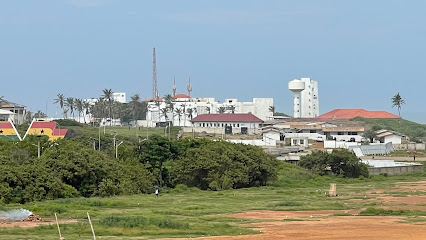
Jocom Golden Hotel
Experience the warmth of Ghana at Jocom Golden Hotel, your gateway to the cultural wonders of Bolgatanga and the Upper East Region.
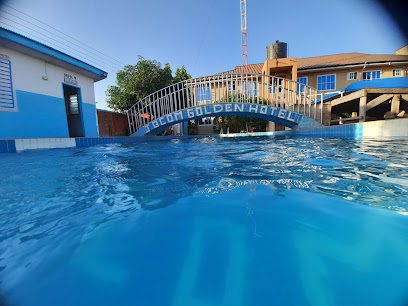
Extee Crystal Hotel
Experience the charm of Bolgatanga at Extee Crystal Hotel, where comfort meets affordability in the heart of Ghana.

GANASS HOTEL
Discover comfort and cultural charm at Ganass Hotel, the ideal retreat in Bolgatanga, Northern Ghana, blending modern amenities with local hospitality.
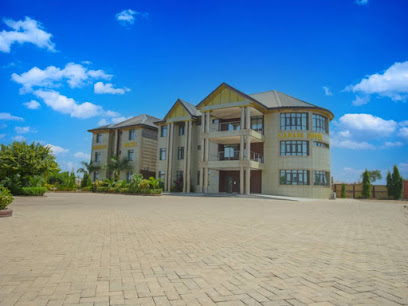
Sand Gardens Hotel
Discover comfort and local charm at Sand Gardens Hotel in Bolgatanga, a perfect retreat for travelers exploring Ghana's vibrant culture.

Tap Hotel
Discover comfort and local culture at Tap Hotel in Bolgatanga, offering cozy accommodations, local cuisine, and warm Ghanaian hospitality.
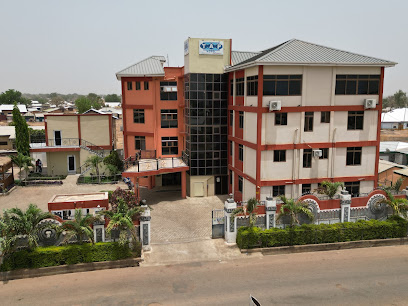
Regional Library
Discover Bolgatanga's cultural and educational treasures at the Regional Library, a peaceful oasis for knowledge seekers and culture enthusiasts.
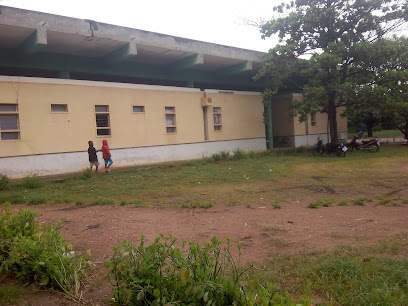
Bolga
Discover Bolga, the crafts center of northern Ghana, where vibrant markets, stunning landscapes, and rich cultural traditions create an unforgettable and authentic travel experience.
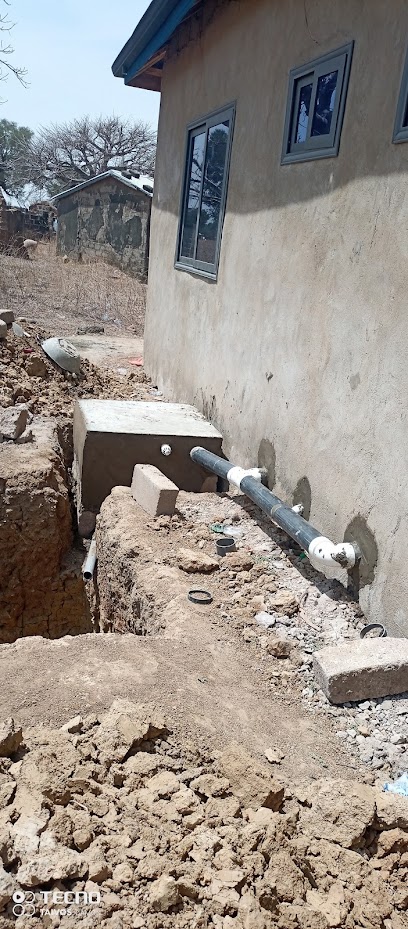
Upper East Regional Museum
Discover the rich cultural heritage of Ghana's Upper East Region at the Upper East Regional Museum in Bolgatanga, showcasing local traditions, artistry, and history.
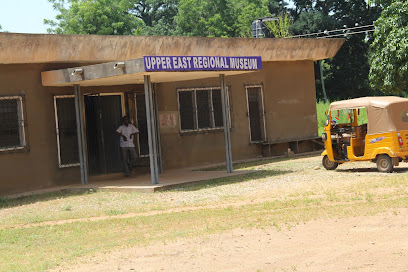
Tongo:upper East region (Ghana)
Explore Tongo in Ghana's Upper East Region, where breathtaking landscapes meet rich cultural heritage and unforgettable experiences await.
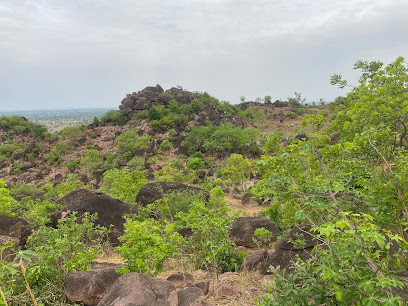
Tenzug Shrines
Experience the spiritual essence of Tongo at the Tenzug Shrines, where local culture and tradition come alive amidst serene landscapes.
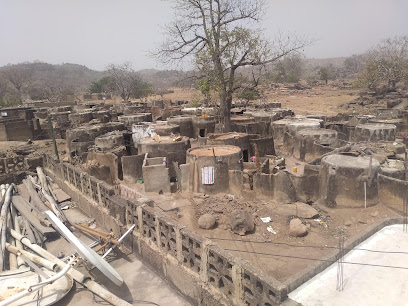
Bolgatanga Technical Institute
Discover Bolgatanga Technical Institute, a beacon of education and culture in Ghana, where innovation meets tradition in a vibrant academic community.

TINDONMOLGO
Explore TINDONMOLGO, a serene gated community in Bolgatanga, where local culture and tranquility combine for a unique travel experience.

Unmissable attractions to see
Ghbasket
Discover the tranquility of Ghbasket Park in Bolgatanga, a lush green haven perfect for relaxation, picnics, and cultural experiences.
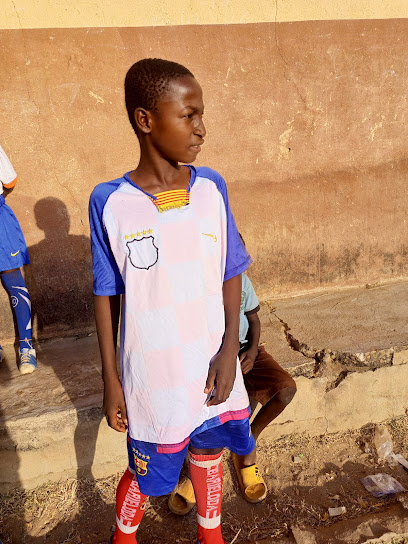
Tongo Hills and Tengzug Shrine
Explore Tongo Hills and Tengzug Shrine in Ghana – a stunning fusion of natural beauty and rich cultural heritage awaits you at this must-visit tourist attraction.
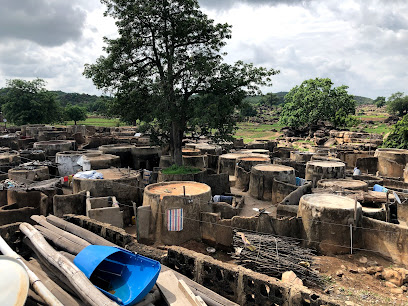
Bolga
Explore Bolgatanga's vibrant markets, rich culture, and stunning landscapes in the heart of Ghana.
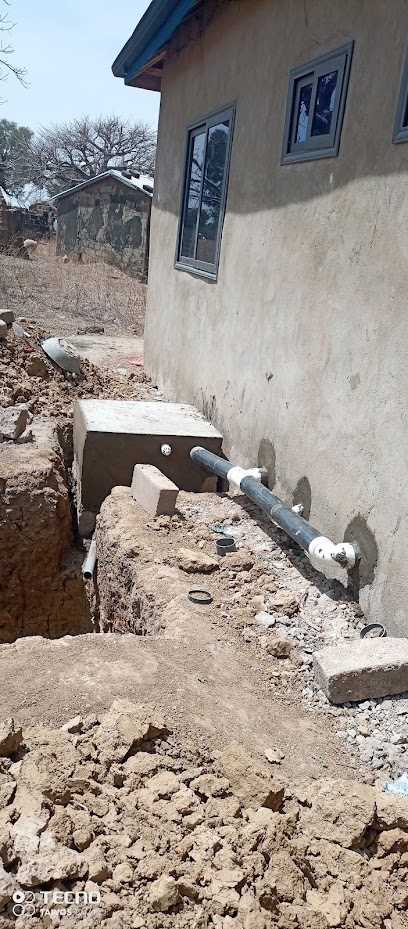
Upper East Regional Museum
Discover the cultural treasures and historical narratives at the Upper East Regional Museum in Bolgatanga, a must-visit for every traveler.
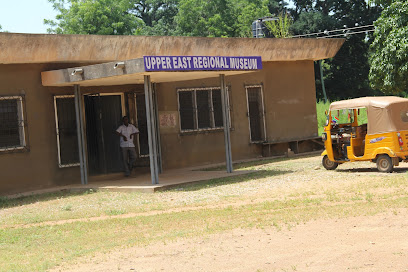
Tongo:upper East region (Ghana)
Explore Tongo in Ghana's Upper East Region, a captivating blend of natural beauty, rich culture, and warm hospitality.
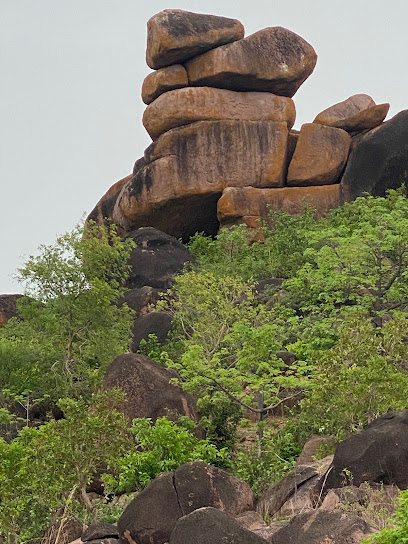
Tenzug Shrines
Explore the captivating Tenzug Shrines in Tongo, Ghana - a serene spiritual haven steeped in rich cultural heritage and stunning natural beauty.
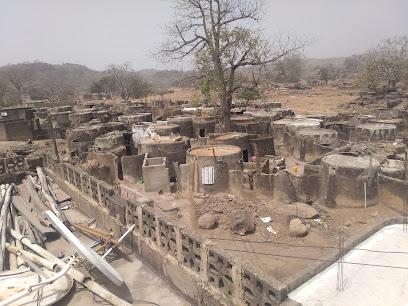
East Kings Garden
Explore the lush landscapes and tranquil beauty of East Kings Garden in Zuarungu, a perfect retreat for nature lovers and families alike.

Abole Junction
Discover the breathtaking trails and rich culture at Abole Junction, a top hiking destination in Bolgatanga, Ghana.
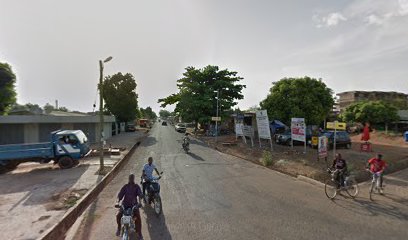
Zuui
Explore the tranquil beauty of Zuui, an enchanting garden in Bolgatanga, Ghana, perfect for relaxation and nature lovers seeking a serene retreat.

Essential places to dine
Jocom Golden Hotel
Discover comfort and local charm at Jocom Golden Hotel in Bolgatanga - your gateway to exploring Ghana's vibrant culture.
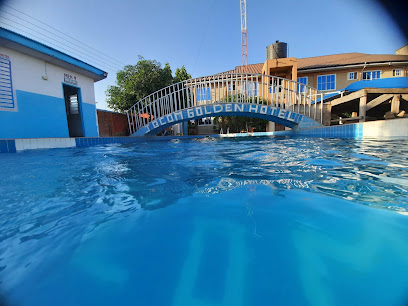
Extee Crystal Hotel
Discover comfort and cultural richness at Extee Crystal Hotel in Bolgatanga – your ideal base for exploring northern Ghana.
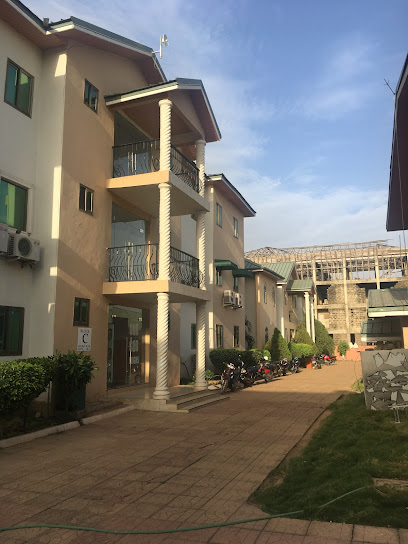
Doxa Court
Experience comfort and culture at Doxa Court in Bolgatanga - your ideal base for exploring northern Ghana's vibrant heritage.
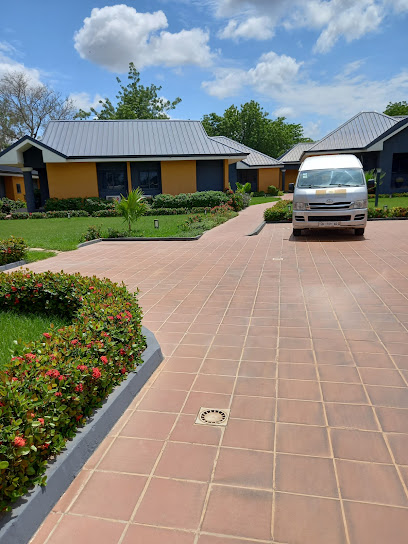
Comme Ci Comme Ca Hotel
Discover comfort and culture at Comme Ci Comme Ca Hotel in Bolgatanga – your gateway to experiencing authentic Ghanaian hospitality.

GANASS HOTEL
Experience authentic Ghanaian hospitality at Ganass Hotel in Bolgatanga - your gateway to culture and comfort.
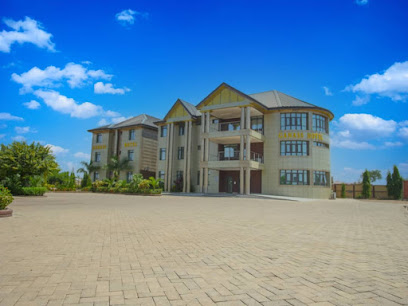
Reg Health Restaurant
Discover the essence of Ghanaian cuisine at Reg Health Restaurant in Bolgatanga, where health meets flavor in every delightful dish.
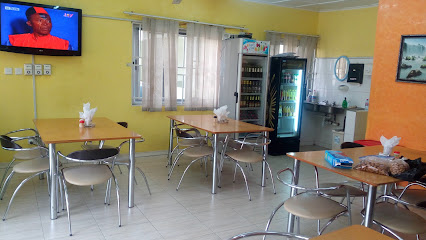
GARDENERS LOUNGE
Discover authentic Ghanaian flavors at Gardeners Lounge in Bolgatanga - where every meal tells a story.
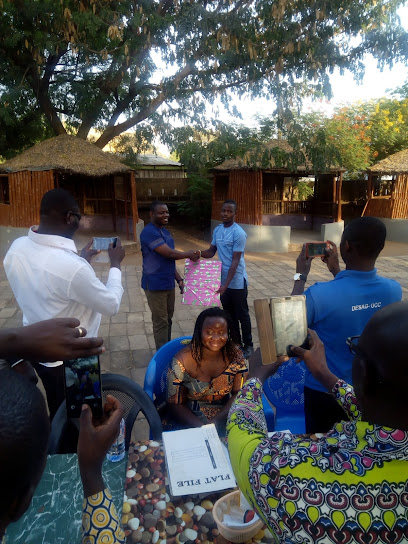
Sanat Minat
Discover comfort at Sanat Minat Hotel in Yikene - your gateway to explore Bolgatanga's rich culture and scenic beauty.

Sand Gardens Hotel
Discover Bolgatanga's charm at Sand Gardens Hotel - where comfort meets culture in the heart of Ghana.

McClean View Restaurant
Experience authentic Ghanaian cuisine at McClean View Restaurant in Bolgatanga - where every meal tells a story.
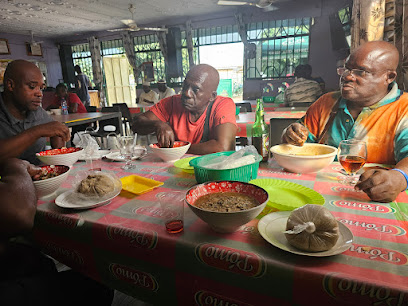
Tap Hotel
Discover comfort and local charm at Tap Hotel in Bolgatanga, your perfect getaway with modern amenities and warm hospitality.
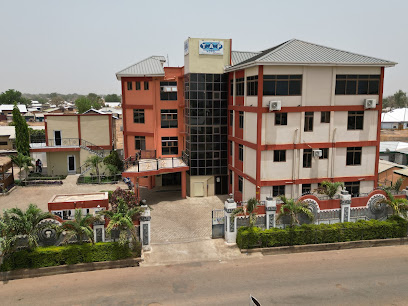
New Life Line Drinking Bar
Discover the vibrant nightlife at New Life Line Drinking Bar in Bolgatanga, where local culture meets refreshing beverages in a lively atmosphere.
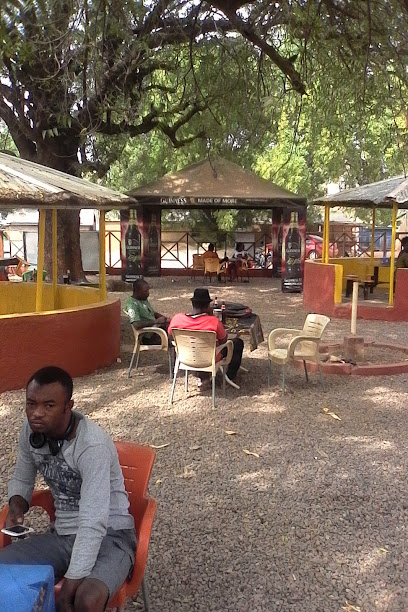
Toast Fast Food
Discover the taste of Ghana at Toast Fast Food in Bolgatanga – where local flavors meet fast food favorites.
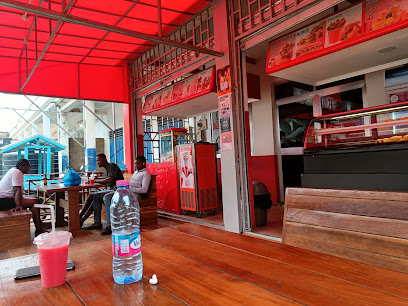
Wintex Plaza
Experience authentic Ghanaian cuisine at Wintex Plaza in Bolgatanga - where local flavors meet vibrant culture.
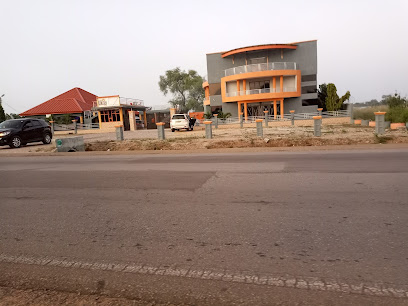
Majesty
Discover culinary excellence at Majesty Restaurant in Bolgatanga – where local flavors meet international cuisine.
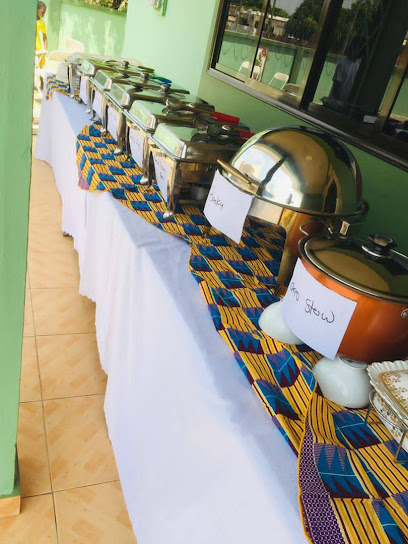
Markets, malls and hidden boutiques
Melcom Bolgatanga
Discover the vibrant shopping experience at Melcom Bolgatanga, where local culture meets diverse international products.
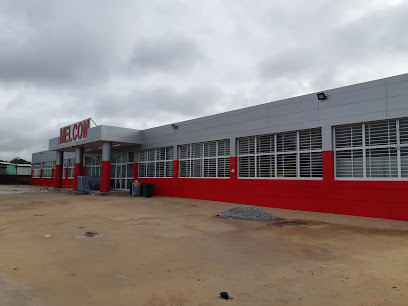
KING FUZZY SHOP
Experience the vibrant fashion of Ghana at King Fuzzy Shop in Bolgatanga, where culture meets style in a colorful clothing store.
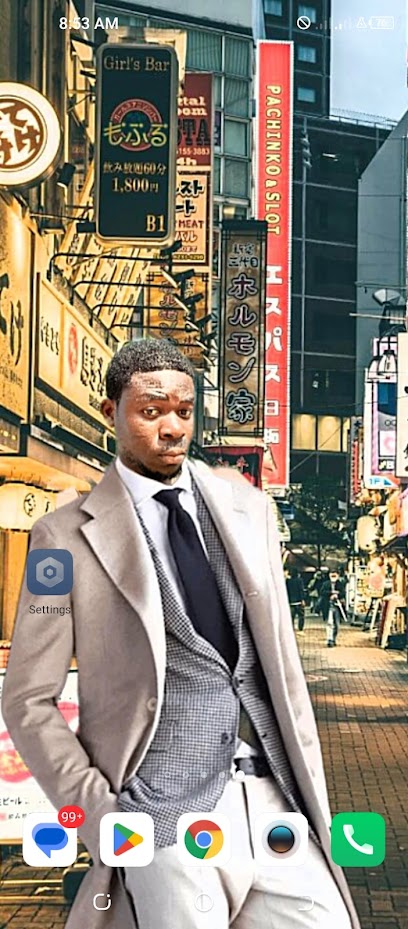
Bolgatanga Arts and Crafts Village
Explore the Bolgatanga Arts and Crafts Village: A treasure trove of authentic Ghanaian handicrafts and vibrant local culture.
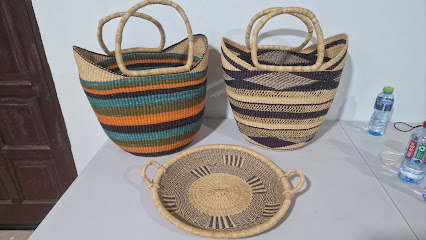
Fonky Books and Stationery
Experience the vibrant culture of Bolgatanga through literature and unique stationery at Fonky Books and Stationery.
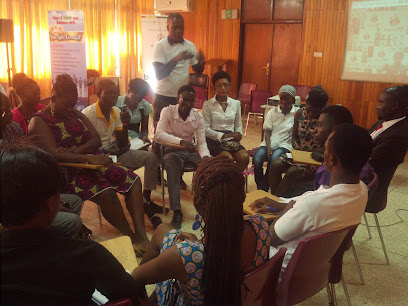
Gedah DECO
Explore Gedah DECO in Bolgatanga for authentic Ghanaian clothing, vibrant styles, and a rich cultural shopping experience that you won't forget.
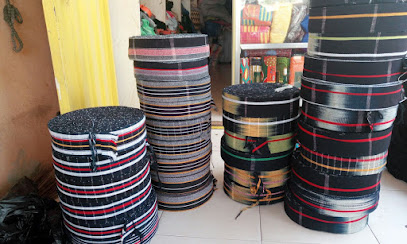
Tribble D(3D) Boutique
Dive into the essence of Bolgatanga's fashion at Tribble D(3D) Boutique, where tradition meets modern style in unique clothing.
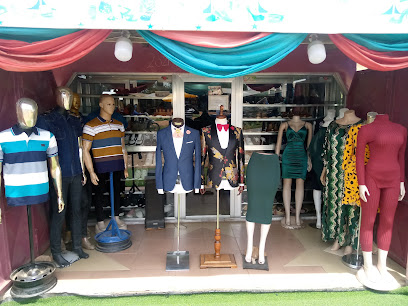
IREDAN VENTURES
Explore the local flavors at IREDAN VENTURES, a vibrant grocery store in Bolgatanga, Ghana, offering a rich selection of local and imported products.
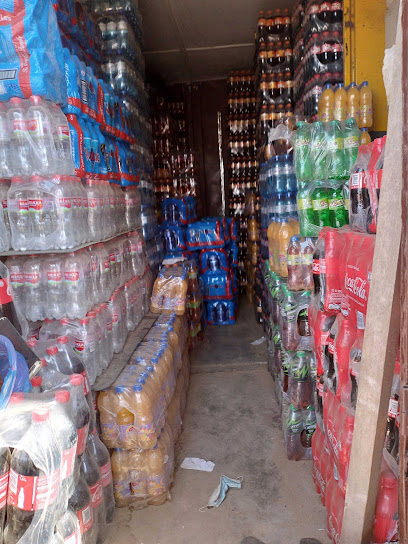
P&J collection and ventures. Bolgatanga. Ghana
Discover the artistry of Bolgatanga at P&J Collection and Ventures, the premier destination for handcrafted bags and local craftsmanship in Ghana.

Ricara Beauty World
Explore vibrant fashion at Ricara Beauty World in Bolgatanga, where local culture meets contemporary style.

Delwende shopping center
Discover the charm of local crafts and everyday essentials at Delwende Shopping Center, Bolgatanga’s vibrant shopping hub.

Jordan boutique
Explore Jordan Boutique in Bolgatanga for unique Ghanaian crafts, vibrant textiles, and exquisite jewelry that embody local artistry.
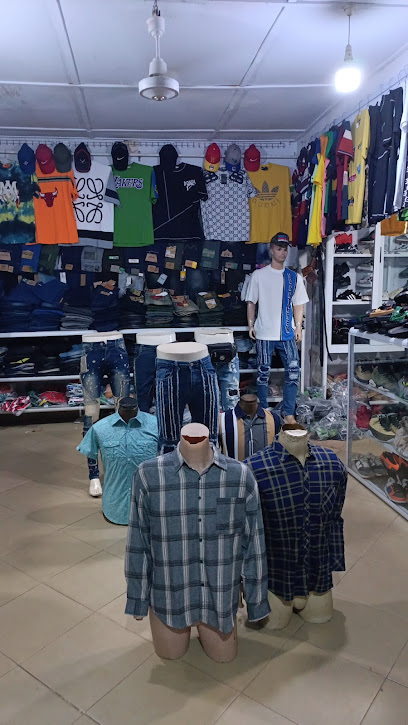
Jovera Exclusive
Explore Jovera Exclusive in Bolgatanga for unique boutique shopping that showcases local craftsmanship and cultural heritage.
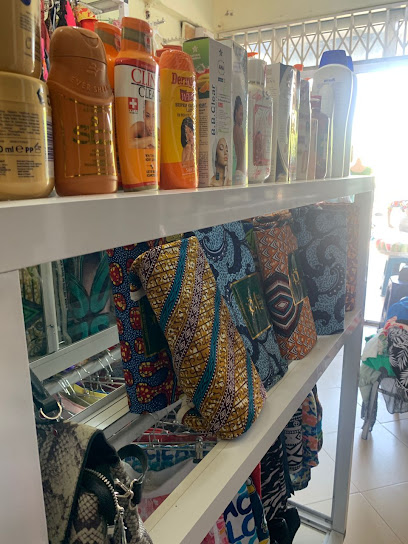
YUSFAT DREAM ENTERPRISE
Discover unique Ghanaian crafts and home goods at Yusfat Dream Enterprise in Bolgatanga, a treasure trove for culture and decor enthusiasts.
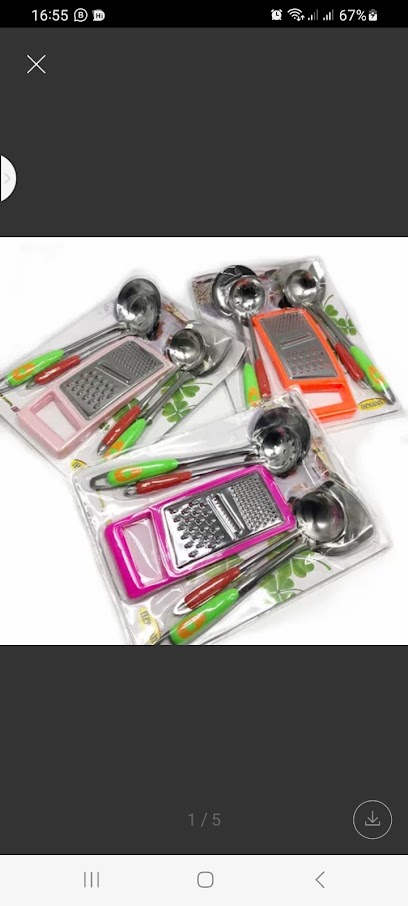
Yorogo
Explore the essence of Bolgatanga at Yorogo, where local craftsmanship meets vibrant culture in a unique shopping experience.

LIFE LOVE ENTERPRISE BOLGA
Discover the charm of authentic Ghanaian crafts at Life Love Enterprise Bolga, your go-to home goods store in Bolgatanga.
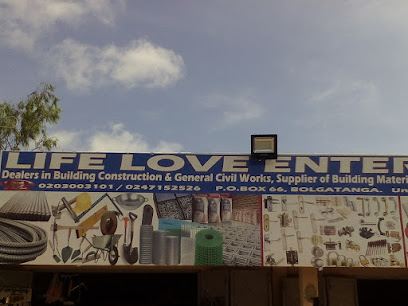
Essential bars & hidden hideouts
New Life Line Drinking Bar
Discover Bolgatanga's nightlife at New Life Line Drinking Bar, where local culture meets a friendly atmosphere and diverse drink options.
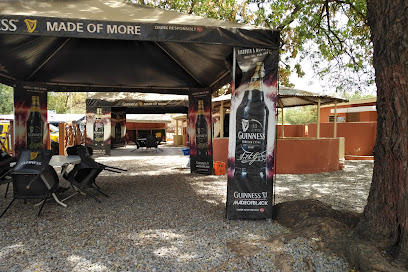
Vem's Pub
Discover the vibrant nightlife of Bolgatanga at Vem's Pub, where local culture meets a lively atmosphere for an unforgettable experience.
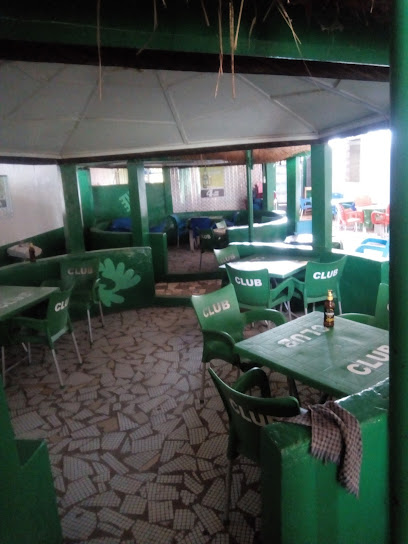
Kings and Queens Annexe
Experience the vibrant nightlife at Kings and Queens Annexe in Bolgatanga, where local flavors and refreshing drinks come together in a lively atmosphere.
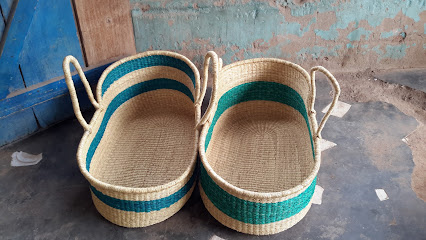
Comme Ci Comme Ca Annexe Bar
Immerse yourself in the lively local culture at Comme Ci Comme Ca Annexe Bar in Bolgatanga, a perfect spot for drinks and socializing.

Sun City
Experience the lively nightlife at Sun City, Bolgatanga's ultimate bar destination for delicious drinks and vibrant entertainment.
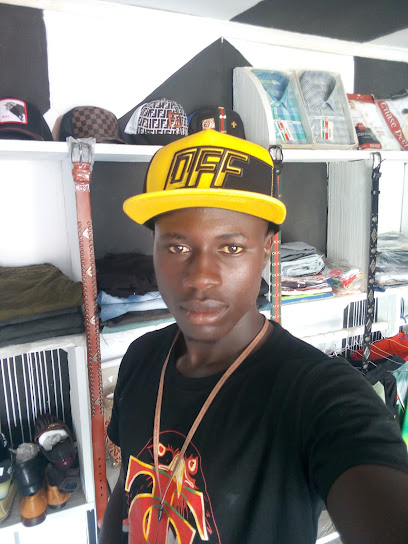
Pappis Bar and grill
Discover the lively atmosphere of Pappis Bar and Grill in Bolgatanga, where local flavors meet a vibrant social scene.
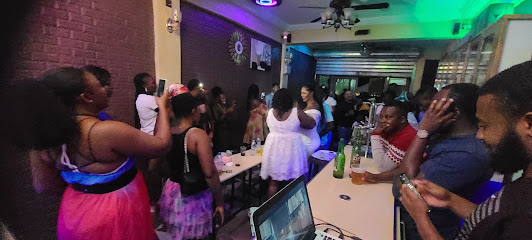
J5 Pub
Discover the vibrant nightlife at J5 Pub in Bolgatanga, where local brews and lively atmosphere meet cultural experiences.
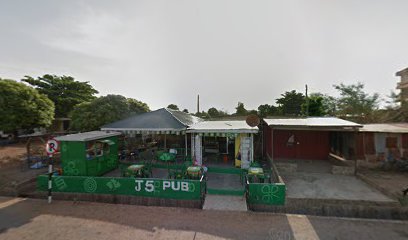
Solo Drinking Spot
Discover the essence of Bolgatanga at the Solo Drinking Spot, a welcoming bar featuring local drinks and a vibrant atmosphere for travelers.

Mays' Corner Pub
Experience Bolgatanga's vibrant nightlife at Mays' Corner Pub, where drinks flow and good times roll in a lively atmosphere.
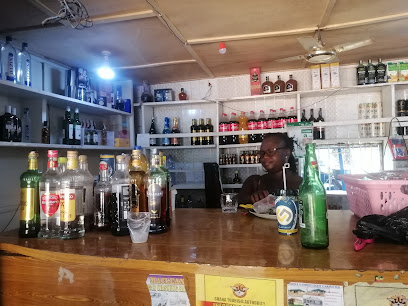
Midway and Street View Bar
Experience the vibrant atmosphere at Midway and Street View Bar in Bolgatanga, a perfect spot for drinks and local culture.
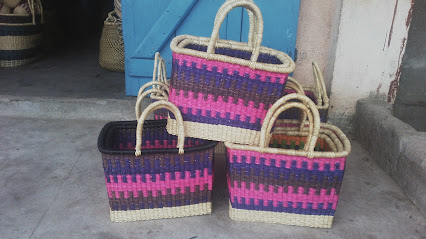
Esther Drinking Spot
Experience the vibrant local culture at Esther Drinking Spot, a lively bar in Bolgatanga offering refreshing drinks and a friendly atmosphere.

Baby's Pub
Experience the cozy atmosphere and fine wine selection at Baby's Pub in Bolgatanga, Ghana - a perfect retreat for wine lovers.
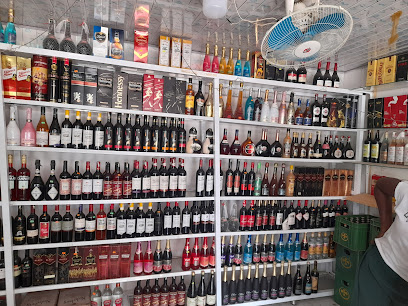
First Chapter Drinking Spot
Discover Bolgatanga's vibrant nightlife at the First Chapter Drinking Spot, a local bar offering a unique blend of drinks and culture.

Dency Dee's Pub & Grill
Experience the heart of Bolgatanga's nightlife at Dency Dee's Pub & Grill, where delicious food and drinks meet a lively atmosphere.
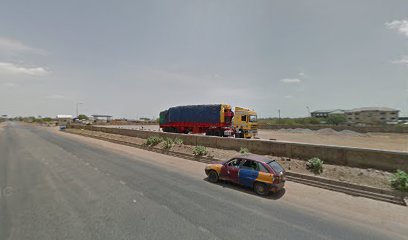
Local Phrases about Bolgatanga
-
- HelloZee
[zee] - GoodbyeTaa
[taa] - YesEe
[ee] - NoAyaa
[ayaa] - Please/You're welcomeNyom
[nyom] - Thank youAabaa
[aabaa] - Excuse me/SorryKɔkwɛ
[kɔkwɛ] - How are you?Ali nɛ?
[ali nɛ?] - Fine. And you?Ayi. Na wo?
[ayi. na wo?] - Do you speak English?Naŋ tɛma ŋmɛlɛ Englesa?
[naŋ tɛma ŋmɛlɛ englesa?] - I don't understandMinim nɛ lɛɛ
[minim nɛ lɛɛ]
- HelloZee
-
- I'd like to see the menu, pleaseMi nɛ kɔsɛm bɔl ni, nyom
[mi nɛ kɔsɛm bɔl ni, nyom] - I don't eat meatMi kala bɔŋ naŋa
[mi kala bɔŋ naŋa] - Cheers!Araaba!
[araaba!] - I would like to pay, pleaseMi nɛ yɛlɛ, nyom
[mi nɛ yɛlɛ, nyom]
- I'd like to see the menu, pleaseMi nɛ kɔsɛm bɔl ni, nyom
-
- Help!Nɛɛ!
[nɛɛ!] - Go away!Nɛ bɛi!
[nɛ bɛi!] - Call the Police!Kɔl polis!
[kɔl polis!] - Call a doctor!Kɔl dɔktɔ!
[kɔl dɔktɔ!] - I'm lostMi chee
[mi chee] - I'm illMi nɛ kɔkɔ
[mi nɛ kɔkɔ]
- Help!Nɛɛ!
-
- I'd like to buy...Mi nɛ sɛlɛ...
[mi nɛ sɛlɛ...] - I'm just lookingMi nɛ saŋm
[mi nɛ saŋm] - How much is it?Yoo nɛ yɛlɛ?
[yoo nɛ yɛlɛ?] - That's too expensiveKɔkɔsɛlɛ nɛ lɛɛ
[kɔkɔsɛlɛ nɛ lɛɛ] - Can you lower the price?Naŋ yɛlɛ sɛlɛ lɔɔ?
[naŋ yɛlɛ sɛlɛ lɔɔ?]
- I'd like to buy...Mi nɛ sɛlɛ...
-
- What time is it?Yoo wɛlɛ nɛ?
[yoo wɛlɛ nɛ?] - It's one o'clockYoo wɛlɛ yɔɔlɔɔ
[yoo wɛlɛ yɔɔlɔɔ] - Half past (10)Yoo wɛlɛ kɔɔlɔŋ (10)
[yoo wɛlɛ kɔɔlɔŋ (10)] - MorningZɔŋ
[zɔŋ] - AfternoonDɔkɔ
[dɔkɔ] - EveningZɔ
[zɔ] - YesterdayNaa
[naa] - TodayNɛ
[nɛ] - TomorrowNzɛ
[nzɛ] - 1Baa
[baa] - 2Bii
[bii] - 3Bii
[bii] - 4Baa
[baa] - 5Baa
[baa] - 6Baa
[baa] - 7Bii
[bii] - 8Bii
[bii] - 9Bii
[bii] - 10Baa
[baa]
- What time is it?Yoo wɛlɛ nɛ?
-
- Where's a/the...?Hɛrɛ nɛ...?
[hɛrɛ nɛ...?] - What's the address?Yoo wɛlɛ aadɛɛs?
[yoo wɛlɛ aadɛɛs?] - Can you show me (on the map)?Naŋ yɛlɛ saŋm nɛ (map)
[naŋ yɛlɛ saŋm nɛ (map)] - When's the next (bus)?Yoo wɛlɛ saba (bus)?
[yoo wɛlɛ saba (bus)?] - A ticket (to ....)Nɛ sɛtikɛ (to ....)
[nɛ sɛtikɛ (to ....)]
- Where's a/the...?Hɛrɛ nɛ...?
History of Bolgatanga
-
Bolgatanga, often referred to as Bolga, has roots that trace back to ancient times. Archaeological evidence suggests that the area has been inhabited for centuries, with early settlers drawn to the fertile lands and the strategic location along trade routes.
-
During the late 19th and early 20th centuries, Bolgatanga became a significant location in the colonial landscape of Ghana. The British established administrative posts in the region, which served as a center for governance and trade. The influence of British colonial rule is evident in some of the architecture and infrastructure in the town.
-
Bolgatanga has long been a hub of trade and commerce. Its position as a crossroads for various trading routes made it an essential market town. The famous Bolgatanga Market, known for its vibrant atmosphere and a wide array of goods, from handcrafted baskets to traditional attire, has been a focal point for traders from across West Africa.
-
The cultural landscape of Bolgatanga is rich and diverse. It is home to the Gurunsi people, known for their unique traditional practices, art, and architecture. The distinctive painted walls of the Gurunsi houses, adorned with symbolic motifs, are a testament to the area's cultural heritage. Festivals such as the 'Feok' festival celebrate the agricultural bounty and historical victories, bringing the community together in vibrant displays of dance, music, and rituals.
-
After Ghana gained independence in 1957, Bolgatanga experienced significant changes. The town saw improvements in infrastructure, education, and healthcare. Development projects aimed at modernizing the area have led to a blend of traditional and contemporary lifestyles, making Bolgatanga a fascinating place to explore.
-
Bolgatanga is renowned for its craftsmanship, particularly in basket weaving. The iconic Bolga baskets, known for their durability and intricate designs, are sought after worldwide. The town's artisans also produce beautiful pottery, leather goods, and textiles, reflecting the rich artistic heritage of the region.
Bolgatanga Essentials
-
Bolgatanga, often referred to as 'Bolga', is the capital of the Upper East Region of Ghana. The nearest major airport is Tamale Airport (TML), which is approximately 160 kilometers away. From Tamale, you can take a bus or a taxi to Bolgatanga. The journey by road typically takes around 3 to 4 hours. An alternative option is to use long-distance bus services from Accra, Kumasi, or Tamale, which connect directly to Bolgatanga. These buses are generally comfortable and provide an affordable means of reaching Bolgatanga.
-
In Bolgatanga, local transportation options include shared taxis and motorbike taxis (commonly known as 'Okada'). Shared taxis follow specific routes and are an economical way to get around. For more flexibility, you can hire a private taxi for the day. Motorbike taxis are faster and can navigate through traffic more easily but exercise caution and insist on a helmet. Bicycles are also a popular mode of transport, and you can rent one to explore the town at your own pace.
-
The official currency of Ghana is the Ghanaian Cedi (GHS). Credit cards are not widely accepted in Bolgatanga, so it is advisable to carry sufficient cash. ATMs are available in Bolgatanga, and they accept international cards for cash withdrawals. However, it is prudent to withdraw a sufficient amount of cash in larger cities like Tamale or Accra before traveling to Bolgatanga. Local markets and smaller shops usually operate on a cash-only basis.
-
Bolgatanga is generally considered a safe destination for tourists. However, it is advisable to take standard safety precautions. Avoid walking alone at night in unfamiliar areas and be cautious with your belongings in crowded places, such as markets. There are no specific high-crime areas targeting tourists, but it is always best to stay vigilant and aware of your surroundings. Petty thefts, such as pickpocketing, can occur, so keep your valuables secure.
-
In case of an emergency, dial 191 for the police, 192 for the fire service, and 193 for an ambulance. Bolgatanga has a regional hospital, the Bolgatanga Regional Hospital, which provides medical services. It is recommended to have travel insurance that covers medical emergencies. For minor health issues, there are several pharmacies in Bolgatanga where you can purchase over-the-counter medications.
-
Fashion: Do dress modestly. Lightweight, breathable clothing is advisable due to the warm climate, but avoid revealing attire. Religion: Do respect local customs and traditions. When visiting religious sites, dress conservatively and ask for permission before taking photographs. Public Transport: Do be respectful and patient. Public transport can be crowded. Give up your seat to elderly passengers. Greetings: Do greet people with a handshake. A friendly greeting in the local language, such as 'Naawuni Yhi Tiya' in Mampruli, is appreciated. Eating & Drinking: Do try local delicacies and accept food offerings graciously. Don't refuse hospitality, as it is considered impolite.
-
To experience Bolgatanga like a local, visit the vibrant Bolgatanga Market, known for its handwoven baskets, leather goods, and traditional crafts. Engage with locals, who are often friendly and willing to share stories about their culture and heritage. Don't miss the chance to visit the Paga Crocodile Pond, a short drive away, where you can see and interact with live crocodiles. For a unique experience, attend a local festival, such as the Fao Festival, which showcases traditional music, dance, and customs of the region.
Trending Landmarks in Bolgatanga
Nearby Cities to Bolgatanga
-
Things To Do in Ouagadougou
-
Things To Do in Wa
-
Things To Do in Ziniaré
-
Things To Do in Koudougou
-
Things To Do in Dédougou
-
Things To Do in Ouahigouya
-
Things To Do in Bobo-Dioulasso
-
Things To Do in Sunyani
-
Things To Do in Atakpamé
-
Things To Do in Niamey
-
Things To Do in Kpalimé
-
Things To Do in Kumasi
-
Things To Do in Notse
-
Things To Do in Ho
-
Things To Do in Koforidua







